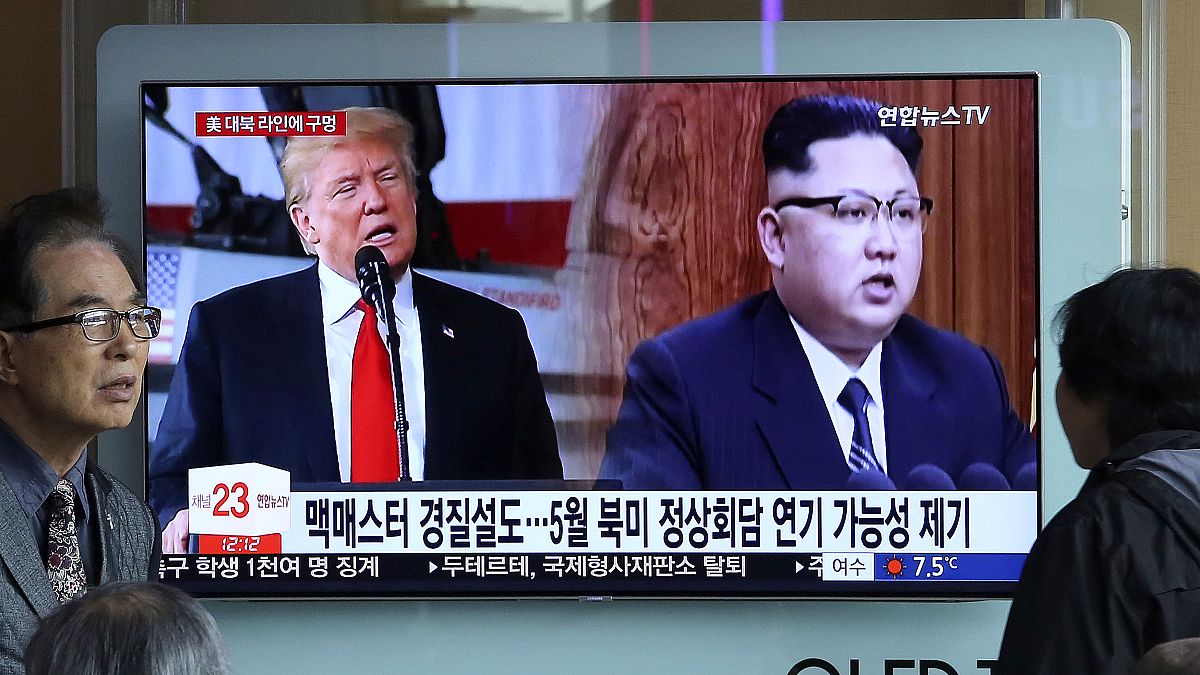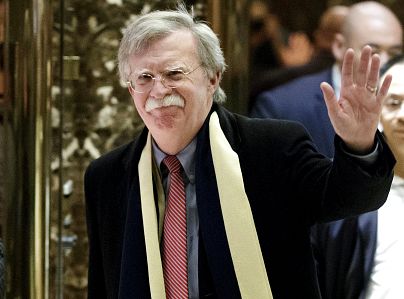As Trump approaches these talks, it is essential that he not underestimate Kim's political savvy.
President Donald Trump's announcement on March 22 that John Bolton, the former U.S. ambassador to the United Nations, will replace Army Lt. Gen. H.R. McMaster as national security adviser has shaken the foreign policy world — a world that doesn't like to be surprised, much less caught off guard. Conventional wisdom is that Trump is trading a seasoned and politically moderate Army general for an outspoken hawk. That the incoming national security advisor has a strong history of advocating for military strikes — against Iran and North Korea, importantly — has only heightened the angst that many are now feeling.
Plenty of questions remain about Bolton's influence, but it seems clear that Bolton's appointment will impact the administration's foreign policy on a wide range of issues. Most immediately, his presence in the West Wing will have enormous implications for the proposed summit between the president and North Korean leader Kim Jong Un. The summit seemed like it was on track for the end of May, with frantic discussions no doubt taking place behind the scenes in preparation. But now it seems less clear that the White House will even follow through on the plan.
Bolton has long argued that diplomacy with North Korea is a waste of time and that preemptive military strikes are the only way to stop Kim from developing the capability to attack the United States. As recently as February 28, Bolton published an op-ed in the Wall Street Journal advocating for a pre-emptive strike on North Korea. And there is little reason to indicate he will significantly change his views once he officially joins the president's team. In fact, some have argued that he was hired because precisely because of his hawkish outlook.
Bolton’s appointment actually makes the talks with North Korea more vital. If Trump reneges on his promise it will be a huge embarrassment for Kim.
But Bolton's appointment actually makes the talks with North Korea more vital. If Trump reneges on his promise it will be a huge embarrassment for Kim, who has never before taken such a public risk. Leaving him hanging now would make a second attempt at negotiating much more difficult and the U.S.'s diplomatic situation even more precarious.
Under normal circumstances, talks such as these are preceded by months of careful, detailed work by lower-level staff on both sides, as potential agreements and terms are ironed out in advance. The goal of such interactions is to more fully understand the issues at play and guard against surprises. In this case, it appears that Trump will be short-circuiting this process. With much of his national security team in transition, it will be up to the president and a few staff members to prepare for the negotiating room.
As Nicholas Eberstadt explained in the Washington Post, negotiating with North Korea is a zero-sum game — and you have to understand how the North Koreans play it. This is wise counsel. And understanding Kim himself is just as important. Little is known definitively about the enigmatic leader, but a careful examination of public reports and statements reveals a personality that may be at odds with mainstream public perception. As Trump approaches these talks, it will be important for him to study Kim carefully and not fall for fearmongering or hyperbole.
For one thing, Kim is not irrational or crazy. At almost every juncture since he took power in 2011, Kim has made decisions consistent with his longstanding goals of staying in power and increasing North Korea's standing in the world. He craves legitimacy and respect for himself and his country. All of his actions, including accelerating his nuclear and missile program and his recent Olympic charm offensive, can be explained in the service of these two goals. While Kim's rhetoric may be cartoonish and incendiary, his actions have shown him to be quite a rational decision-maker.
As an example of his calculating rationality, one only needs to look toward Kim's relationship with traditional allies Russia and China. While Kim has irritated bothcountries with his aggressive behavior and feud with the United States, he is shrewdly aware that neither will abandon him, and uses that to his advantage. Even when China restricted coal shipments in response to tighter UN sanctions, Russia was there to pick up the slack. As effective as the Trump administration's strategy of "maximum pressure" has been, it has not led to Kim being isolated internationally.
While Kim’s rhetoric may be cartoonish and incendiary, his actions have shown him to be quite a rational decision-maker.
Similarly, it would also be a fallacy to assume that because Kim has not left North Korea since 2011, he is unaware of the outside world. By all accounts, Kim studied abroad in Europe when he was young, during which time he was undoubtedly exposed to western ideas and cultures. Given that he studied under an alternative name, it is safe to conclude that Kim is keenly aware of his nation's pariah status. This knowledge likely fuels his quest for equal status for North Korea.
In this way, Kim is quite different from his father and grandfather, neither of whom is known to have ever traveled to the West. Both Kim Il-Sung and Kim Jong-Il interacted mainly with other like-minded leaders and benefactors. Neither of them is known to have studied abroad. So their thinking and negotiating strategy would have been informed primarily by authoritarian impulses. All this means that while Kim Jong-Un may be the product of his lineage, he is certainly not a carbon copy. And his broader experiences will lead to a different negotiating strategy. While the West could not trust his father and grandfather, the verdict is still out on the younger Kim's trustworthiness.
While Kim Jong-Un may be the product of his lineage, he is certainly not a carbon copy. And his broader experiences will lead to a different negotiating strategy.
Finally, it is important to keep in mind that Kim remains a brutal dictator. He is good at propaganda and significantly softened his image with his Olympic diplomacy in February. But he still rules with an iron fist. He has ruthlessly killed members of his own family to preclude power struggles. He has purged scores of senior government officials for the same reason. And he continues to operate and take advantage of his notorious prison work camps to control the population through terror. He does all this while still stoking the same cult of personality that surrounded his predecessors. Kim owes his allegiance to no one other than himself, which the United States should remember. For Kim, all actions are ultimately for his own power and glory.
And yet, despite the hand-wringing and uncertainty, the United States still has a significant opportunity here — as long as the administration approaches any talks in a serious and well-prepared manner. Of course, this sort of approach is exactly what former Secretary of State Rex Tillerson and McMaster had advocated for. The calculus for the United States has not changed — but now the main variable may be Bolton, not Kim.
Anish Goel is a senior fellow in the International Security Program at New America. He previously served in the White House's National Security Council as senior director for South Asia, and in the U.S. Senate's Armed Services Committee as professional staff for Asia-Pacific.

